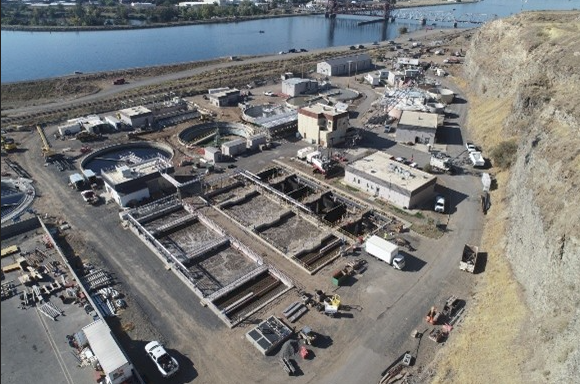What happens when the region’s leading water and environmental professionals get together to tackle the industry’s most pressing issues? Keller found out last week as our team attended the PNCWA 2025 Annual Conference hosted in Portland, Oregon. It was a special opportunity to connect with colleagues, exchange ideas, and learn from some of the best and brightest in the water industry.
The Keller team proudly presented and facilitated a number of discussions on the latest hot topics in water and wastewater. See below for a closer look at some of the stories and key strategies we brought to the table this year:
Wastewater Treatment for Watershed Protection
Pamela Villarreal, P.E. + Peter Olsen, P.E.
When wildfires devastated four Oregon towns, outdated state regulations blocked rebuilding efforts. A Supreme Court ruling expanded water protections complicating permits for a new wastewater system. And Oregon’s “Three Basin Rule” added further hurdles. In response, the towns partnered with Salem to push for updated rules before federal funding expires in 2026. During this session, Keller explained how collaboration and public input can overcome environmental policy challenges—and help communities rebuild smarter and faster.
Biosolids Dewatering and Drying (101 Class)
Eric Roundy, P.E./BCEE
Biosolids management is one of the toughest challenges in water recovery. It’s costly, time-consuming, and made more difficult by emerging pollutants like PFAS. Biosolids aren’t always covered in discharge permits, and treatment methods like mechanical dewatering can disrupt plant operations. In this important session, our team broke down how dewatering and drying work. And we also walked through new technologies that help facilities tackle current and future biosolids issues more efficiently.
PFAS: Synthetic chemicals that contain fluorinated carbon atoms, are highly resistant to breakdown, and can lead to adverse human health effects. PFAS chemicals accumulate in biosolids at wastewater treatment facilities and are making land application and disposal of biosolids more challenging.
Stormwater 101: Runoff, Surface Water, and Watersheds
Ryan Retzlaff + Trenton Buster, P.E.
We all know that rainwater runoff affects the health of our watersheds, but do we realize how much our everyday actions contribute too? In this presentation, the Keller team dove into the details on how things like farming, roads, and buildings change the way water flows and picks up pollution. They also dug deep into tools and rules—like stormwater plans and clean water laws—that help protect our rivers, lakes, and drinking water. The goal was to show how smart planning and better choices can lead to healthier water systems for everyone. Attendees walked away with that understanding—and more.

Building Resiliency: Lewiston’s Wastewater Treatment Plant Upgrade Amidst COVID-19
Stillman Norton, P.E. + Holly Johnson, P.E.
With parts dating back to the 1950s, equipment failures, and emergency repairs, the Lewiston, Idaho, wastewater treatment plant was long overdue for an upgrade. During this presentation, the team took a close look at recent $35 million upgrade that improved every part of the plant. The audience discovered how key upgrades were made to handle ammonia and dewatering and backup systems were added. Old structures were re-used, resulting in cost-savings for the City. And despite challenges from COVID-19, the City, engineers, and contractors all came together to build a stronger, more reliable facility.
Advancing Water Solutions for the Next Generation
The PNCWA Annual Conference is a premier gathering for a reason—and this year proved it. With the water industry evolving rapidly, events like this are more important than ever. And our team was proud to contribute by educating and connecting members to promote a healthier water environment, while also making a positive impact on the future of our field. Best of all, the team had a great time doing it. The conference reaffirmed the leading role Keller and PNCWA play in advancing resilient water systems. We’re excited to see what innovations develop in the coming year, and can’t wait for PNCWA 2026!
To see how we put these and other ideas into action, check out our expertise.
Questions? Let’s talk.
